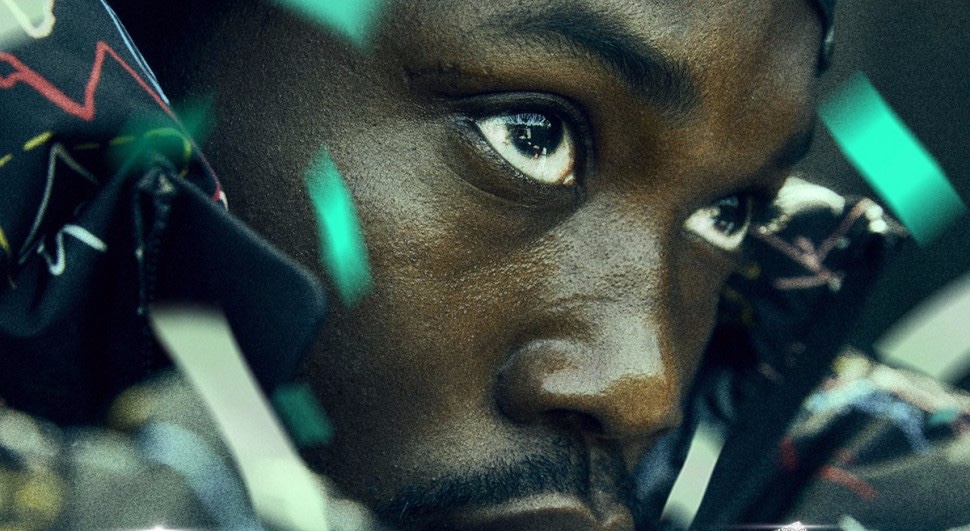
On Championships, Meek Mill’s first album out since the deluge of legal drama that consumed the vast majority of his last 12 months — to say nothing of the “rap beef” that did the same to the 12 previous and nearly overwhelmed last year’s Wins & Losses — Meek is at his best when he raps over skillfully-chopped soul samples and thunderingly dramatic opera ones. That won’t surprise anyone who’s paid even remote attention to his catalogue over he past few years, but what is surprising are the clever, sometimes subtle ways he nudges the margins of what’s worked for him in the past to find new subject matter to mine for creative content.
For instance, Meek has often rapped about prison; it’s the specter that’s hovered over the entirely his career, given he’s been on probation since he was a teenager. However, where on prior outings like 2017’s Wins & Losses and 2015’s Dreams Worth More Than Money, the threat of prison was what lingered like a ghost, ominously pressing in on the windows like a snoopy, unwanted guest, on Championships, it’s concrete. It’s not just something that could happen — it’s something that has happened, irrevocably shifting the perspective through which Meek views the trappings of success and the dangers of falling off.
“Could’ve been a lawyer until they came and shackled you / Felons on your records so them jobs ain’t gettin’ back at you,” he mourned on “Young Black America” from Wins & Losses. He’s explaining the cycle that traps young, Black men in a perpetual rotation of recidivism, but it’s all external. It’s academic; again, this is something that does happen, endlessly, but it’s not anywhere near as harrowing as the desolation that bleeds through “Trauma”: “My mama used to pray that she’d see me in Yale / It’s f*cked up she gotta see me in jail / On the visit with Lil Papi, it hurt even though it seemed to be well / They got a smoker with a key to my cell.” It’s that last, jarring detail that adds the layer of lived-in, grease-stained reality. It’s not just a ghost anymore, it’s a corpse, complete with the reeking scent of corruption and uncomfortable reminder of mortality that such things bring.
Of course, Meek’s ordeal also lends a different kind of insight. He’s got the details down now, yes, but he also understands the bigger picture, how the pieces fit together. On the Notorious B.I.G.-sampling “What’s Free?” alongside Jay-Z, one of Meek’s biggest advocates both throughout his incarceration and in his resulting reform endeavors, Meek details the machinations of the penal system and its unfair workings and his own mission to dismantle it: “When you bring my name up to the judge tell him facts / Tell him how we fundin’ all these kids to go to college / Tell him how we ceasin’ all these wars, stoppin’ violence / Tryna fix the system and the way they designed it / I think they want me silenced.” Then completes the hat trick, tying the theme of the Biggie original to the frivolity of the feud between himself and his former lyrical rival and drawing a clear distinction: “Is we beefin’ or rappin’? I might just pop up with Drizzy.”
And while that pair does reconnect and spark up a strong semblance of their prior working chemistry on “Going Bad,” it’s Jay-Z’s verse that resonates long after it’s done, expanding on Meek’s prior comparison of prison to modern-day slavery by evoking the remaining legacies of the real, zombified institution. Over the course of his seamlessly stitched-together bars, Jay cites the Three-Fifths Compromise, the “traditional” dish chitterlings (fondly referred to as “chit’lins”), gentrification, cultural appropriation, and yes, Kanye’s despicable obsession with that damn hat.
The only real missteps on the album come from Meek’s overly obvious reaches for crossover streams. It’s not a bad thing to reach across the aisle for Latin trap revenue, but nothing about Anuel AA or Melii’s verses on “Uptown Vibes” and “Wit The Sh*ts” respectively feels organic or strictly necessary. As has been the case with a number of the year’s highest-profile rap projects, Championships could stand some trimming at 19 tracks, even if it does come in at just under 70 minutes.
It’s not too long, but it could be more focused, sticking to the soulful tracks like “Respect The Game,” “Oodles O’ Noodles Babies,” “Dangerous,” and the title track, and 86-ing some of the trap-centric joints, which tend to leech Meek’s energy — with the exception of the Cardi B-featuring “On Me,” on which both rappers sound truly electric. Since they’re playing with a livewire in Nicki Minaj — nothing overt, but plenty of Cardi bars that could (and probably will) be interpreted as shots by the Barbz — that makes sense, but their chemistry on the track is undeniable. Likewise for 21 Savage on “Pay You Back,” where the deadpan ATLien sneers “wish I rapped in the ’90s ’cause this 2K shit full of weirdos.”
Meek’s always managed to express that same loyalty to tradition: The traditions of the streets, the traditions of hardcore, lyrics-driven rap. On Championships, like on much of his prior work, that translates to a truly solid album that shakes out to about 70 percent bangers, which ain’t half bad in any era. However, unlike his previous projects, Meek has more on his mind than flexing watches and cars, and it makes a difference. By opening up a little and showing the scars, he turns in his most relatable, resonant project yet, and the one that has the most potential for staying power. After all, if there’s any tradition that connects hip-hop to the streets, it’s in fighting the power, the most worthy cause he’s undertaken yet.
Championships is out now via Atlantic. Get it here.
Meek Mill is a Warner Music artist. .






